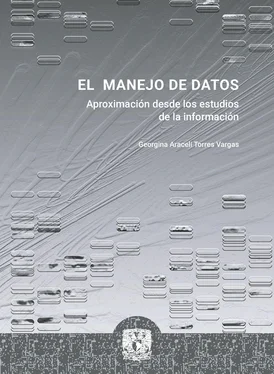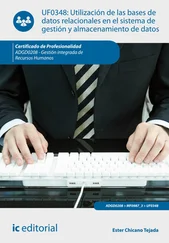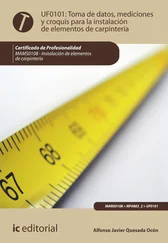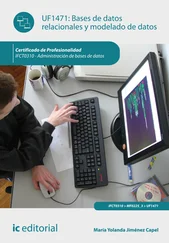IFA DATA CURATION PROJECT
The primary objective of the IFLA LTR project was to identify the roles and responsibilities of RDM practitioners working in multiple countries. The study also focused on the terminology used to describe the emerging practices and new professional roles. The study was designed using a mixed-method approach and consisted of three phases:
Comprehensive literature review and data mining to analyze the terminology used to describe the emerging practices and new professional roles
Quantitative content analysis of job announcements for data curators and RDM librarians
Semi-structured interviews with professionals working as data librarians, data curators, or research data managers.
The quantitative phase of the study concentrated on the content analysis of job announcements derived from a variety of library and information science job posting sites, including International Association for Social Science Information Services and Technology (IASSIST), and Code4Lib. The goal of the content analysis was to examine the titles, roles, responsibilities, qualifications, and competencies listed in the advertised positions. The data set included 441 job advertisements. Most of the analyzed positions (73.6%) were based in the United States. However, the data set also had some international coverage. The widest distribution came from Europe with 17 European countries in the sample.
The findings from the quantitative analysis of job announcements indicate a wide variation in titles used to identify positions. There was no single title standing out as a standard for the discipline. The most common titles included librarianship in some form, such as Data Services Librarians, Digital Scholarship Librarians, or Research Data Management Librarians. The positions were frequently advertised under a wide variety of titles often with additional data-related responsibilities, such as data science or data reference services. In the analyzed data set, RDM services were located primarily (84.2%) in universities and academic libraries. The range of responsibilities also reflects the influence of librarianship with the top responsibilities in public services including instruction, reference, and outreach. However, a degree in librarianship was required in only 27% of the job advertisements.
In the qualitative phase, semi-structured interviews were conducted with professionals working as data librarians, data experts, datacurators, or research data managers. The goal of interviews was to gain insight into the practice of research data management and to examine the services from the perspective of the professionals working in the field. The interviews were conducted with 26 professionals from Australia, Canada, U.S. and six countries in Western Europe. The study participants were employed at 24 organizations, including:
Academic libraries (19)
Campus-wide research data service centers (3)
University departments (2)
Data archive (1)
Research center (1).
All participants held Masters degrees, including 15 had Masters in Library and Information Science (MLIS). Ten participants had PhDs in a variety of disciplines, including biology, environmental science, history, information science, medical informatics, or philosophy. The participants held different position titles although many of their responsibilities and job functions overlapped. Several participants, working mostly in Europe, did not have MLIS but had advanced disciplinary degrees and prior research experience. The variety of titles confirmed the findings from the quantitative phase of the study.
Despite the differences in position titles and terminology, the study found a sense of a shared purpose or even mission among the participants. The professionals across institutional and national settings emphasized that their primary roles and responsibilities involved assisting researchers in meeting funder requirements, improving data management practices, and ultimately contributing to a more efficient research process and better-quality data. Several participants mentioned the end-goal of “making data more usable” (P-L, Interview), and efforts to advocate the FAIR data principles. The participants emphasized that although assisting researchers with meeting funder’s requirements was one of the immediate goals, they also wanted to improve research practices, as stated by Participant V, “that’s really what we want to be leading to, it’s not just about compliance but actually trying to change research culture and get people to think it’s good research practice” (P-V, Interview).
The types of RDM services identified in this study encompassed both consultative and technical services. The concept of the research data lifecycle played a central role in organizing and structuring services. All professionals participating in this study were engaged in consultative services, outreach, and open access advocacy. The consultative, informational services were typically offered at the beginning of the research cycle in the form of one-on-one consultations, workshops and seminars for faculty and graduate students, or online tutorials and guidelines. The consultative services focused on offering guidance and support in:
Meeting compliance with funders’ requirements
Developing data management plans (DMP)
Following data management best practices
Adhering to data citation standards
Promoting open access and data sharing
A smaller number of participants assisted researchers with technical aspects of depositing data in repositories and archival storage. Technical services were usually offered at the end of the research data life cycle. Technical infrastructure and the level of support depended on institutional settings. Technical services involved offering support in:
Data management
Data formats and file naming conventions
Data cleaning and verification
Data conversion
Data description and documentation
Metadata creation using standardized schemas
Data deposit/publishing
Ingest into repository systems
Assigning identifiers
Data anonymization
Data security
Archiving and preservation
The participating information professionals often acted as mediators between different stakeholders building networks of expertise and community around good research practices. Their work required some technical skills and knowledge of new technological solutions since they often made recommendations to researchers and led RDM initiatives at their institutions. The new and evolving character of the positions required expertise in multiple areas and the ability to adapt to the changing environment. Specific technical expertise and the level of required skills depended on institutional settings. The study participants emphasized that it’s often impossible for one person to fulfill all the necessary skills and competences found in job descriptions. The lack of technical skills and hands-on experience with databases and scripting was mentioned for professionals with library backgrounds.
RDM services were primarily located in academic libraries as part of research and consultation departments or digital scholarship units. University libraries represented that largest group in the sample but the type of services, the stage of its development, and the level of support for researchers varied greatly between the sites. In the early stage of RDM development, academic libraries usually focused on needs assessment, outreach, training, and open access advocacy and provided consulting services on developing DMPs, metadata, and data curation practices. Academic libraries with more advanced RDM services offered not only assistance with DMPs, metadata, but also with data citation, data sharing and with technical aspects of depositing data in repositories.
Читать дальше











![Brian Thompson - A Monkey Among Crocodiles - The Life, Loves and Lawsuits of Mrs Georgina Weldon – a disastrous Victorian [Text only]](/books/704922/brian-thompson-a-monkey-among-crocodiles-the-life-thumb.webp)
